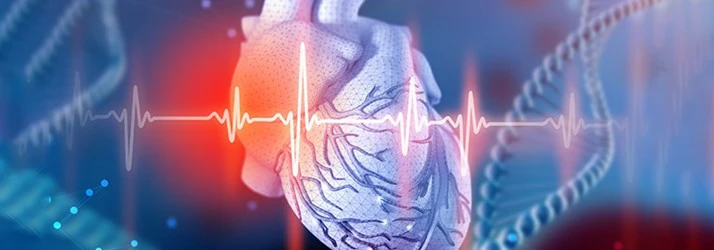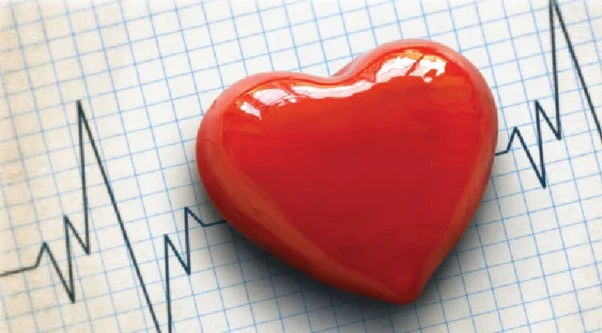Heart Rate Variability in Nelson Tasman
Heart Rate Variability in Nelson Tasman

Did you know that your nervous system controls your heart rate in Nelson Tasman? It is one of the many smart things that your body does without you having to or put any thought into it. Your nervous system will increase or decrease your heart rate based on the needs of your body, and this is called heart rate variability.
Most people know that having a healthy heart rate is important – you don’t want it too fast, and you don’t want it too slow. It is providing your vital organs with blood and oxygen that you need to survive. However, your heart rate is not at a constant steady 70 beats per minute all day every day; it changes based on whether you are resting or exercising, whether you are happy or angry, nervous or relaxed.
These changes in heart rate can be measured by something called heart rate variability or HRV. HRV is controlled by your nervous system made up of your brain, spinal cord and all the nerves that go to every tissue and cell in your body, specifically the part of your nervous system that is automatic, that we don’t have to think about, like breathing. A good HRV a high one is thought to reflect a healthy heart and a body that can respond and adapt to its environment and needs.

It is important that your brain knows what is going on in and around your body so that it can know when to increase or decrease your heart rate, and it needs to do this quickly. For example, if you suddenly need to run really fast because you’re being chased by a bear, your nervous system will quickly need to increase your heart rate so it can pump enough blood to your muscles so you can run. However, when you are sleeping or relaxed, you don’t want your heart rate to stay beating that fast as this is not good for you, so your brain will sense this and then decrease your heart rate.
We know now, from a lot of neuroscience research studies, that when your spine is not moving properly, this changes the way your brain can sense what is going on in and around your body and the way it controls your body.1-3 If the joints of your spine are not moving properly what - chiropractors call being subluxated - this may affect how well you can sense what is going on in and around you and how well you can react to your environment. Research has shown that when a chiropractor then gently adjusts these subluxations, it helps the brain to more accurately “see” what is going on in and around the body. So, when you get adjusted by your chiropractor, it might help you to be able to respond and adapt to your environment better and keep you balanced and healthy.
Nelson Tasman Chiropractic may help
What does the research say about chiropractic care and heart rate variability (HRV)? Researchers have looked at a lot of the studies that have been done on the effects of chiropractic care on HRV and summarised them.4 The results show that chiropractic care does affect HRV, and in particular, it seems to increase the healing and calming side of our autonomic nervous system, the parasympathetic nervous system!
In one study,5 the researchers got 96 different chiropractors to measure HRV before and after adjustments on 8 different patients and after 4 weeks on 2 of their patients. Altogether, 539 adults had their HRV recorded before and after their adjustments, and 111 adults had their HRV recorded across four weeks of chiropractic care. They found that in both of these groups of adults, there were improvements in their HRV measurements and that in the group that received adjustments over four weeks, these improvements remained constant over that time.
These studies suggest that even just one adjustment can influence an important part of our nervous system that controls our heart rate, which represents how well our body can respond to our environment and is considered to be a measure of someone’s adaptability and general health. Also, very importantly, in the stressful, fast-paced life we often live these days, chiropractic care appears to increase the “healing and calming” side of our autonomic nervous system. If you are interested in good health, adaptability and want to respond better to stress, why don’t you consider chiropractic care?
Make sure your spine is functioning well so you can operate at your best!
Read more on this topic here.
References
- Kawli T, He F & Tan M-W. Disease models & mechanisms 2010;3(11-12):721-31.
- Buckingham JC, et al. Pharmacology Biochemistry and Behavior 1996;54(1):285-98.
- Elenkov IJ, et al. Pharmacological reviews 2000;52(4):595-638.
- Herkenham M & Kigar SL. Progress in neuro-psychopharmacology & biological psychiatry 2017;79(Pt A):49-57.
- Kipnis J. Scientific New Zealander 2018;319(2):28-35.
- Kox M, et al. Proceedings of the National Academy of Sciences 2014;111(20):7379-84.
- Pearce BD, Biron CA & Miller AH. Advances in Virus Research: Academic Press 2001:469-513.
- Sanders VM & Kohm AP. International review of neurobiology 2002;52:17-41.
- Uthaikhup S et al. Arch Gerontol Geriatr 2012;55(3):667-72.
- Haavik H & Murphy B. J Electromyogr Kinesiol 2012;22(5):768-76.
- Treleaven J. Man Ther 2008;13(1):2-11.
- Daligadu J, et al.JMPT 2013;36(8):527-37.
- Haavik H & Murphy B. Journal of Electromyography and Kinesiology 2012;22(5):768-76.
- Haavik H, et al. 2017 doi: 10.1016/j. jmpt.2016.10.002
- Taylor HH & Murphy B. JMPT 2008;31(2):115-26.
- Colombi A & Testa M. Medicina 2019;55(8):448.
- Kovanur-Sampath K, et al. Musculoskeletal Science and Practice 2017;29:120-31.
Acknowledgments
- Dr. Heidi Haavik – BSc(Physiol) BSc(Chiro) PhD
- Dr. Kelly Holt – BSc, BSc(Chiro), PGDipHSc, PhD
- Dr. Jenna Duehr – BChiro, BHSC (Nursing), MHSc
Monday
2:00pm - 6:30pm
Tuesday
8:00am - 11:30am
2:00pm - 6:30pm
Wednesday
8:00am - 11:30am
2:00pm - 6:30pm
Thursday
8:00am - 11:30am
Friday
Closed
Saturday & Sunday
Closed
Connected Chiropractic
13/643 Rocks Road
Moana, Nelson 7011



